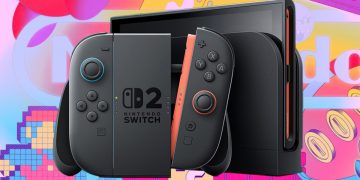We all know it: Windows Phone is a thing of the past. As much as it stings, the reality is we’ve settled into a two-horse race in the mobile world with iOS and Android leading the pack.
In the U.S., Apple is the tech industry’s golden child, dominating the phone market. However, on a global scale, it’s a different story. Android, fueled by Google’s open approach allowing all kinds of device manufacturers to use the platform, has outpaced Apple. Because iPhones only run iOS and are pricey, Android holds an edge, especially in less affluent regions. In Europe and Asia, Android is hugely popular, with Samsung leading in markets outside the U.S., though it’s facing stiff competition from emerging Chinese brands like Huawei and Oppo.
And what’s Microsoft’s role in all this? Well, it’s practically a ghost in the mobile sphere. Apart from a few lackluster Android apps, the company seems to have shelved its smartphone ambitions. The Microsoft Launcher on Android hasn’t seen a substantial update in ages and still grapples with issues on Samsung phones. Even SwiftKey, once a keyboard favorite, has been left to languish. Microsoft’s Surface Duo 2, a folding phone, never got the latest Android updates, turning into a potential security risk.
Microsoft missing the mobile boat is more serious than it seems. Sure, their early venture into OpenAI promises ongoing returns, but their absence in “mobile computing” hands a significant advantage to rivals. Companies like OpenAI, Apple, and Google are shaping the future of consumer AI without Microsoft’s involvement. They’re also hampered in their “Xbox everywhere” strategy due to blockades from Apple and Google on Xbox Cloud Gaming.
In hindsight, Microsoft CEO Satya Nadella reflected on the abrupt closure of Windows Phone as a misstep. Without a stake in the mobile game, Microsoft’s hands are tied in influencing the future of mobile gaming and consumer AI. They can’t install the “default” software on vast mobile platforms, but there might be a silver lining ahead.
So, let’s allow ourselves a little speculation.
The DOJ is potentially laying groundwork that could make a Microsoft Android phone profitable. In a move evocative of their tussle with Microsoft in the late 90s over Internet Explorer, the Department of Justice is suggesting “remedies” to chip away at Google’s monopolistic hold. Those who remember might recall when Microsoft had to include a browser choice screen on Windows, a move which signaled the end for Internet Explorer and set MSN on a slow decline. Today, Chrome sits on the throne with Google’s search engine as its default, leaving Microsoft and others in a perpetual struggle to gather enough data to power effective search algorithms. Now, the U.S. government seems to think letting Google monopolize was not the best idea, accusing it of misusing its advantage to promote its services, and has begun hunting for “behavioral remedies.”
Google’s appealing against this ruling, but the DOJ has already proposed that Google must license its search data to rivals, cease its default search engine agreements on certain platforms like Safari on iPhones, and sell off Chrome. The debate on whether these remedies would foster competition is ongoing as the idea could inadvertently grant Google more sway.
Unable to be the “default”, Microsoft has struggled to introduce its products to users. There’s been some noise about how Microsoft tries to assert Edge as the default browser on Windows 11, but considering how much control Google has over the web, it doesn’t seem too extreme (and hey, Edge has become a solid browser).
So, why are we contemplating Google’s hold? Because competition doesn’t stand a chance to surface—something Microsoft encountered when forced to loosen its grip on Internet Explorer. This limited innovation across the web. Google, arguably, could be doing the same, adjusting search algorithms without clear rationale, obliterating businesses in the process. Without data, alternative search methods can’t emerge. Imagine what Bing could do if it had access to more search data for better results.
In a world where Google might be coaxed to level the playing field, Microsoft could explore mobile hardware again. Android’s foundation is majorly funded by data from its vast ecosystem of apps and services. The DOJ even pondered at a point the notion of making Google part ways with Android itself.
Google’s Android holds its grip tight by ensuring its apps and services remain default, a position that stifles competitors. People won’t typically swap pre-installed apps. The DOJ’s proposed remedies aim to unlock more room for variety, although challenges loom large as vested interests might freeze such moves. Clearly, Microsoft eyes a return to mobile, biding its time for the right moment.
A freer Android ecosystem could allow firms to install their own defaults, enabling Microsoft’s suite of apps and services to find room to breathe. Essentially, it offers a green field for building an innovative, user-focused mobile device. Yet, under the current Google-centric setup, launching a new smartphone platform seems unfeasible. Could the DOJ’s intervention inject some much-needed openness into the market?
But for now, this is largely speculative; a dream of what a more open mobile domain could herald for Microsoft. Despite Panos Panay, Microsoft’s passionate hardware enthusiast, departing, there’s a wistful notion that a Microsoft-centered phone could rise. But with current control dynamics, this idea remains distant. Still, it’s intriguing to ponder “what could have been” in the realm of Surface Phone aspirations.
What are your thoughts? Let’s discuss them in the comments!










![[Review] Lost Records: Bloom and Rage – Tape 2 for PS5 [Review] Lost Records: Bloom and Rage – Tape 2 for PS5](https://www.8bitnewsroom.com/wp-content/uploads/2025/05/Review-Lost-Records-Bloom-and-Rage-–-Tape-2-for-360x180.jpg)




































